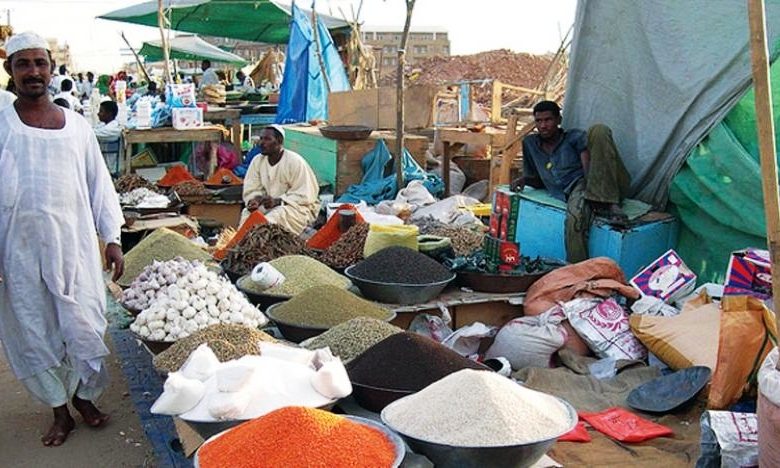The Worst for Sudanese Economy, Year 2023

Report – Rehab Abdullah
The reality that Sudan is experiencing now as a result of the war between the Sudanese army and the Rapid Support Militia (RSF), has made everyone confirm that the year 2023 is the worst year that the Sudanese economy has ever experienced in its history, due to incurring huge losses, observed by major international, Arab and local institutions.
There are many evidences confirming the extent of the damage to the Sudan economy, most notably the decline of the Sudanese economyby 42% according to United Nations reports, while the International Monetary Fund (IMF) expected a contraction of 18%, and according to estimates by the International Food Policy Research Institute in cooperation with American Aid and the World Bank, losses of Sudanese economyis worth about $15 billion, which is equivalent to 48% of Sudan’s gross domestic product (GDP).
Evidence of destruction
Evidence includes the doubling of the prices of commodities, the decline in the value of the Sudanese pound, which exceeded the barrier of one thousand pounds, compared to its pre-war price of 560 pounds, in addition to the 400 establishments being out of work, banks being looted, burned and completely destroyed, including parts of the Central Bank of Sudan in Khartoum and its branch in Gezira.
The economic expert, Dr. Mohammad Al-Nayer, stated that the year 2023 is the worst in the history of Sudan, and attributed this to the events it witnessed, in light of the successive crises that the Sudanese economy is suffering from, starting with the global financial crisis of 2008, the secession of South Sudan in 2011, and the loss of resources that were a pillar of the Sudanese economy with the loss of more than 90% of foreign exchange resources and more than 50% of the general revenues of the budget, the Corona pandemic and then the Russian-Ukrainian crisis, adding that the war on April 15 of the year 2023 came after the first quarter, making the year the worst ever, stressing its impact on public revenues, and State revenues and the trade balance, which negatively affected the Sudan economy.
Looting local and foreign currencies
Al-Nayer said in his interview with “Sudan Events” that the most important thing is the destruction of the infrastructure, particularly the industrial and commercial sector, the destruction of the capital, cases of looting and plundering, and losses estimated at tens of billions of dollars. Al-Nair expected that as long as there is 90% of the monetary mass outside the scope of the banking system, compared to only 10% inside banks. There was huge money in local currency in homes that was looted, and others in hard currency, in addition to gold, which was also looted by the RSF militia and their assistants, besides the looted vehicles and furniture.
Impoverishing the citizen
Perhaps the Dean of the Faculty of Economics at the University of Sudan, Dr. Abdul-Azim Al-Mahal, also confirmed that the year 2023 is the worst year for the Sudanese economy, and he told (Sudan Events) that during this year we lost the resources of the public sector and the private sector, pointing out that in previous wars in the south, Darfur or South Kordofan, South Blue Nile, or Eastern Sudan, the government resources were the most impacted, but this war is completely different from all the wars of the world, in that it impoverished the Sudanese citizen and plundered his property and savings, and he added, “And if we consider that 60% of the wealth is in Khartoum and more than 80% % is located in Khartoum and the Gezira, the country has lost more than 80% of this wealth, and Al-Mahal expressed his regret that a large part of this wealth went to other countries and their economies flourished while ours declined. He bemoaned the destruction of the industrial sector, the banking sector was destroyed, the universities and schools were emptied, and the service sector and investment were disrupted.
Future predictions
The deadlines predicted that the economy would suffer foryears to come due to the non-arrival of remittances from expatriates, and that tourism has been heavily destroyed and thus lost for years to come. He expected the impacts of the war to continue for years to come with the continued imbalance in the balance of payments, the deterioration of the currency, and general economic decline and lack of confidence. However, the Al-Mahal confirmed that all hope is that the war would be a turning point towards production



